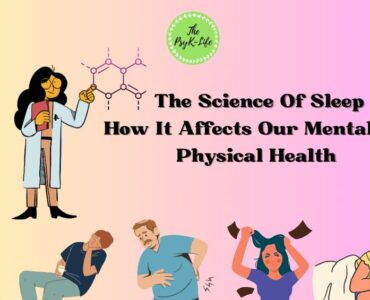Mental health awareness is not just a buzzword. It’s a critical aspect of overall well-being that has been long overlooked but is now gaining the attention it deserves. In recent years, we’ve seen an encouraging shift toward open discussions about mental health, thanks to global awareness campaigns, celebrity advocates, and mental health professionals. Yet, the journey toward true mental health understanding and acceptance is far from complete.

What is Mental Health?
Mental health refers to our emotional, psychological, and social well-being. It affects how we think, feel, and act, influencing how we handle stress, relate to others, and make choices. Good mental health is more than just the absence of mental illness. It is about maintaining a balanced mental state, fostering resilience, and developing coping mechanisms to deal with life’s challenges. Everyone has mental health, just as we all have physical health. Yet, while people routinely check in on their physical health, mental health often gets sidelined. This gap is one of the key reasons why mental health awareness is so critical.

Breaking the Stigma
A significant barrier to mental health awareness is the stigma surrounding it. For too long, people have been afraid to talk about their mental health struggles due to fear of judgment, discrimination, or misunderstanding. This stigma is particularly prevalent in certain cultures and communities where mental illness is seen as a weakness or something to be ashamed of. Stigma not only prevents individuals from seeking help but also perpetuates misinformation about mental health conditions like depression, anxiety, schizophrenia, and bipolar disorder. People may avoid addressing their mental health because they fear being labeled as “crazy” or “unstable,” leading to a vicious cycle of suffering in silence.
Breaking this stigma begins with awareness. When we openly talk about mental health and show support for those struggling, we normalize the conversation. Education and awareness campaigns also help by dispelling myths and providing accurate information on mental health conditions and treatments.

Encouraging Early Intervention
Awareness plays a critical role in early intervention. Mental health issues rarely appear overnight; they often develop gradually, making it easy to dismiss or overlook the warning signs. However, early detection and treatment are crucial for improving outcomes.
When people are aware of the signs and symptoms of mental health disorders, they can seek help sooner. Whether it’s recognizing the persistent low mood of depression, the heightened anxiety, or the early signs of a psychotic episode, understanding mental health symptoms can lead to faster diagnosis and treatment.
This is particularly important because untreated mental health conditions can worsen over time. Early intervention can prevent the escalation of issues, making treatment more effective and reducing the long-term impact on individuals’ lives.

Mental Health in Schools and Workplaces
Schools and workplaces are two significant environments where mental health awareness can have a profound effect. Students and employees alike face unique stressors in these environments that can affect their mental well-being.
In schools, the pressure to perform academically, fit in socially, and navigate personal identity can lead to anxiety, depression, or other mental health challenges. By fostering mental health awareness in educational settings, students can learn to recognize their own emotional struggles and seek help early on. Mental health education in schools can also teach young people the value of self-care, emotional intelligence, and stress management—skills that are crucial for life beyond the classroom.
Similarly, workplaces are increasingly recognizing the importance of mental health for productivity and employee satisfaction. Workplace stress, long hours, and a lack of work-life balance can severely affect employees’ mental health. Employers can promote mental health awareness through wellness programs, offering mental health days, and providing access to counseling or support services. When mental health is prioritized at work, employees feel valued, which in turn boosts morale, engagement, and productivity.
Reducing the Burden on Healthcare Systems
Raising mental health awareness can also help ease the strain on healthcare systems. In many cases, untreated or poorly managed mental health conditions lead to physical health problems, as the mind and body are deeply interconnected. For example, untreated anxiety or depression can contribute to heart disease, diabetes, and substance abuse.
By prioritizing mental health and encouraging early intervention, healthcare providers can reduce the burden of chronic conditions and lower the overall cost of healthcare. A proactive approach to mental health—where individuals receive support and treatment before conditions become severe—can reduce emergency room visits, hospital admissions, and long-term disability.
Raising Awareness in Marginalized Communities
Mental health awareness needs to be inclusive. Marginalized groups, such as racial minorities, LGBTQ+ individuals, and low-income communities, often face additional challenges when it comes to mental health. These populations may experience higher levels of stress due to discrimination, social isolation, and a lack of resources, all of which can negatively impact mental health.
Awareness campaigns must focus on making mental health resources accessible to these communities and addressing the unique barriers they face. For example, cultural sensitivity in mental health services can improve treatment outcomes for people from different backgrounds. Meanwhile, awareness campaigns tailored to specific communities can help dismantle stigma and promote a more inclusive approach to mental health care.

The Role of Social Media in Mental Health Awareness
Social media has played a key role in raising mental health awareness, especially among younger generations. Platforms like Instagram, Twitter, and TikTok have provided spaces for people to share their stories, connect with others, and spread awareness about mental health topics.
However, social media can also have a negative impact on mental health, especially when it promotes unrealistic beauty standards, fosters comparison, or encourages cyberbullying. Therefore, it’s essential to use these platforms responsibly and promote positive, constructive conversations around mental health.
Mental health influencers, advocates, and organizations have harnessed the power of social media to destigmatize mental illness and offer support to those in need. By following mental health advocates or participating in mental health communities online, individuals can find a sense of belonging and validation, which is crucial for anyone struggling with mental health issues.
How You Can Promote Mental Health Awareness
Promoting mental health awareness doesn’t require grand gestures or major campaigns. Small actions can make a big difference:
- Start Conversations: Be open about your mental health and encourage others to do the same. A simple “How are you really doing?” can open the door to a meaningful conversation.
- Educate Yourself and Others: Learn about mental health conditions, treatments, and resources. Share this information with friends, family, or coworkers.
- Support Mental Health Organizations: Donate to or volunteer with organizations that promote mental health awareness, research, and support services.
- Practice Self-Care: Taking care of your own mental health is the first step in promoting awareness. When you model self-care and healthy coping strategies, you encourage others to do the same.

Conclusion
Mental health awareness is essential for creating a healthier, more empathetic world. By breaking the stigma, encouraging early intervention, and promoting mental health in schools, workplaces, and communities, we can ensure that mental health is treated with the same importance as physical health. Awareness is the first step toward a future where everyone feels comfortable seeking help and receiving the support they need.




